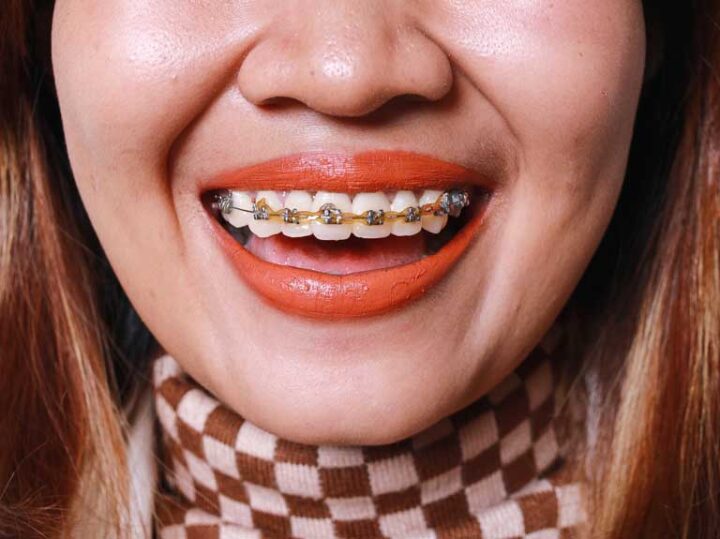What dietary factors cause dental problems?
– Acids lead to the loss of tooth structure whether its through the process of decay via sugars in our diet or acids that are directly found in the food we eat.
– Dental decay is a process where the bacteria in the mouth convert sugars and carbohydrates to acids which dissolve the enamel coating of the teeth . This cycle of decay is enhanced the more often you eat and snack.
– Dental Erosion occurs when we consume foods rich in acids which contact and slowly thin out the precious enamel outer layer, weakening the structure and integrity of the tooth. The diet is the major source of acids in Erosive tooth wear, the other factors being the reflux of stomach acids and conditions which lead to the reduction in the healthy flow of saliva.
How do we reduce the chance of dental decay and dental erosion through the diet ?
– It is about the frequency of eating sugary or acidic foods. We are more susceptible when we are frequently snacking on sugar or acidic foods then if we have them during a main meal. This relates back to the re-mineralising effect and alkalinity of saliva which is in larger volumes when we eat a large meal.
Is it a simple case then to avoid sugary foods and especially between meals?
– Yes it is, however there are different types of sugars in our diet some good and some bad.
– Firstly there are natural sugars found in whole foods such as fruit, vegetables and dairy products which although have sugar contain goodness in the form of vitamins, minerals, fiber and phytochemicals. They are required in a balanced diet and best taken at meal time.
– Secondly there are processed, refined or added sugars which essentially is sucrose which has been isolated and stripped of all its nutritional value. Not only are they a source for Dental decay but are empty calories which are detrimental to general health. These sugars are best kept to bare minimum.
How much added sugar a day is safe and are there ways to know how much sugar a product contains?
– According to the World Health Organisation (WHO), it is recommended that limiting added sugar consumption to less than 6 teaspoons per day to reduce the risk of tooth decay and other health problems.
– One way to reduce added sugar content is to check food labels. Sugar comes in many shapes and forms and sometimes it is hard to know what we are really eating. Reading labels can be daunting so the following is a list which will help one be aware of the hidden sugars the food product contains. Despite these different names, they are all essentially sugars and too much will lead to decay.
* agave nectar *brown rice syrup *brown sugar *cane sugar *caster sugar *corn syrup *demerara syrup *dextrose *fructose *glucose *high fructose corn syrup
*honey *icing sugar *invert sugar *lactose *malt syrup * maltodextrin *maltose * maple syrup *molasses *muscovado sugar *palm sugar *raw sugar *rock sugar *sucrose* treacle *turbinado sugar.
– Remember, you don’t need to avoid sugar that is naturally in whole foods such as fruit , vegetables and dairy products as they contain fibre and other nutrients that make them healthier than packaged and processed foods.
Any tips to lower the risk of decay?
- Choose water and avoid sugary drinks.
- Eat plenty of unprocessed foods such as fruit, vegetables, nuts, legumes, wholegrains, fish and lean meat.
- Check food labels on packaged foods and look at both the amount of sugar per serving and the total amount , as there is sometimes more than one serving in the package. Try to keep total added sugars to less than 6 teaspoons.
- Look at the ingredient list on packaged food to see where the sugars are coming from – naturally occurring sugars in dried or whole fruit are better than added sugars.
- Limit the amount of cakes , biscuits and sugary desserts that are eaten. Fruit is a great dessert as is cheese and nuts.
What about acids in the diet , where do they come from?
– Common sources of dietary acids are mainly from food and drinks and some of the more popular ones are as follows: Soft drinks, Energy drinks, Sport drinks, Vinegar, Citrus fruits, Fruit juices, Fruit flavoured water, Fruit flavoured tea, Cordial, Alcoholic drinks, Sour sweet/lollies, Chewable Vitamin C tablets, Effervescent/Dissolvable vitamins/medicines.
– Sugar-free foods and drinks also have the capacity to cause dental erosion and the more common acidic additives are Citric acid, Sodium Citrate, Malic acid, Ascorbic acid, Fruit juice concentrate.
Any tips to prevent dental erosion?
- Avoiding acidic food or drink as much as possible but if you do have them only do so at meal times when the saliva levels are high.
- When having something acidic swallow it as quickly as possible so that the acids have less contact time with the teeth.
- Eat whole, low acidic fruit rather than drinking fruit juice.
- Chill acidic drinks as warm acidic drinks are more erosive.
- After having anything acidic or after vomiting/reflux rinse your mouth with water, plain milk or a fluoride mouth rinse as soon as possible.
- Consider using a toothpaste containing stannous fluoride (SnF2) as it can be more protective against erosion.











